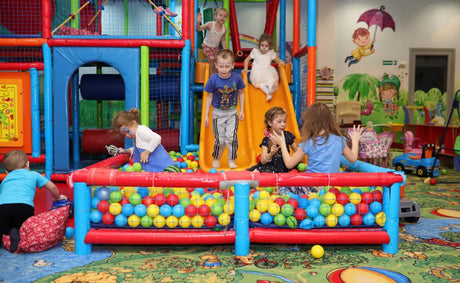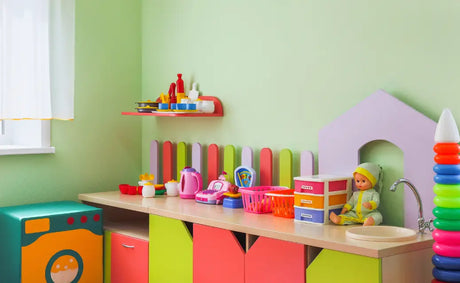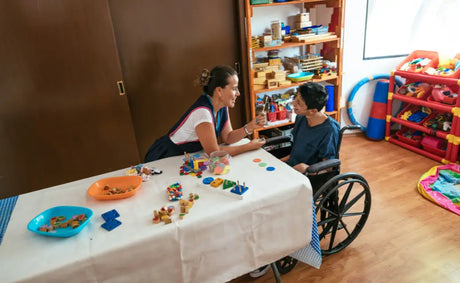Introduction to the Importance of Effective Communication with Teachers
Communication between parents and teachers is one of the most important factors in a student’s success. When parents and teachers talk to each other regularly, they create a supportive environment that helps students do their best in school. Good communication ensures that everyone involved understands the student’s needs, progress, and any challenges they might be facing.
There are many ways for parents to communicate with teachers, such as through face-to-face meetings, emails, phone calls, and even messaging apps. Each method has its benefits, and knowing when and how to use them can make communication more effective. In this blog, we'll explore how to build positive relationships with teachers, choose the right communication methods, and effectively use technology, all to ensure that your child gets the most out of their education.
1. Building a Positive Relationship with Teachers

Establishing Trust and Respect
Building a positive relationship with your child’s teacher starts with trust and respect. Trust is essential because it makes both parents and teachers feel comfortable sharing important information about the student. For example, a teacher might feel more comfortable discussing a student's struggles if they trust the parent to be understanding and supportive. Similarly, parents need to trust that teachers have their child's best interests at heart.
Respect is also a key part of this relationship. Both parents and teachers bring valuable perspectives and experiences to the table. When both sides respect each other’s views, it creates a productive environment where discussions can focus on what’s best for the student. Respectful communication also encourages openness, making it easier to discuss both successes and challenges.
Consistency and Reliability in Communication
Consistency and reliability are just as important as trust and respect. When communication is consistent, both parents and teachers are always on the same page about the student’s progress. For instance, regular updates from the teacher can inform parents of how their child is doing in class, while consistent check-ins from parents can keep the teacher aware of any changes at home that might affect the student.
Being reliable means following through on what you say. If a parent says they will follow up with extra help at home, they must do so. Similarly, if a teacher promises to keep the parent informed about a particular issue, they should ensure those updates happen. This reliability builds further trust and keeps the lines of communication open.
2. Choosing the Right Time and Place for Communication

Respecting Teachers’ Time and Boundaries
While it’s important to communicate regularly with your child’s teacher, it’s also crucial to respect their time and boundaries. Teachers have busy schedules, often balancing the needs of many students, so it’s important to choose the right time to initiate conversations. For example, approaching a teacher right before class starts may not be the best time for an in-depth discussion. Instead, scheduling a meeting or using designated communication hours allows for a more focused and productive conversation.
Respecting a teacher’s time also means being prepared for meetings. Whether it’s a scheduled parent-teacher conference or a quick phone call, having your questions and concerns ready shows that you value the teacher’s time and are committed to working together to support your child.
Utilizing Formal Channels
Using formal communication channels like emails, scheduled meetings, and parent-teacher conferences is beneficial for discussing important matters. These methods provide structure, ensuring that both parties have time to prepare and focus on the topics at hand. For instance, emails are great for documenting important conversations, while meetings allow for more detailed discussions.
Formal channels also help keep communication professional and organized. When using these methods, it’s easier to track what’s been discussed and any actions that need to be taken. This organized approach ensures that nothing important is overlooked and that both parents and teachers can work together effectively.
3. Effective Use of Technology in Communication
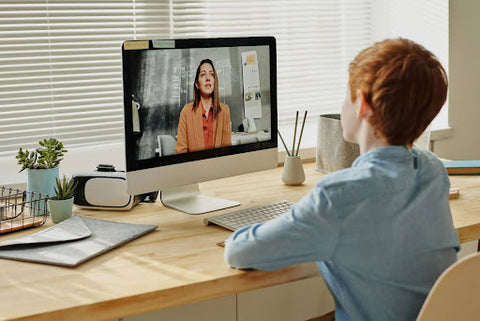
Leveraging Digital Tools for Communication
In today’s digital world, technology offers many ways to communicate with teachers. Tools like emails, school portals, and messaging apps can make it easier to stay in touch and informed about your child’s progress. For example, many schools now use online portals where parents can check their child’s grades, and attendance, and even communicate directly with teachers.
Using these digital tools effectively can save time and make communication more efficient. Instead of waiting for the next parent-teacher conference, you can send an email or message to ask a quick question or share important information. This convenience allows for more frequent communication, helping both parents and teachers stay updated on the student’s progress.
Maintaining Professionalism in Digital Communication
While digital communication is convenient, it’s important to maintain professionalism. Emails and messages should be clear and respectful. For example, when writing an email, it’s helpful to start with a polite greeting, state your concern or question clearly, and end with a thank you. Keeping the tone professional and constructive helps ensure that the conversation remains focused on the student’s needs.
It’s also important to be concise in digital communication. Teachers often have many emails to read and respond to, so getting to the point quickly and clearly is appreciated. Additionally, being respectful in your tone, even when discussing concerns, fosters a positive relationship with the teacher.
4. Preparing for Parent-Teacher Conferences
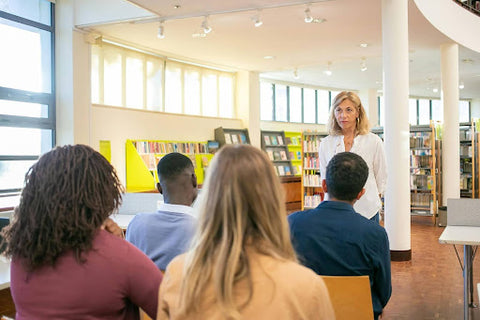
Setting Clear Objectives for Meetings
Parent-teacher conferences are valuable opportunities to discuss your child’s progress and address any concerns. To make the most of these meetings, it’s important to set clear objectives beforehand. For example, you might want to know how your child is doing in a particular subject, or you might have concerns about their behavior in class. Having specific questions or topics ready helps ensure that the conversation is productive and focused.
Preparing for the meeting also involves gathering any relevant information you want to share with the teacher. This might include notes on your child’s behavior at home, any recent changes in their life, or specific areas where they’ve been struggling. Bringing this information to the conference can help the teacher better understand your child’s needs.
Active Listening and Collaborative Problem-Solving
During the conference, it’s important to actively listen to the teacher’s perspective. Listening carefully to what the teacher has to say allows you to understand their concerns and insights. It’s also a good idea to ask follow-up questions if something isn’t clear, ensuring you fully understand the situation.
Collaborative problem-solving is another key aspect of these meetings. If the teacher raises a concern, work together to come up with a plan to address it. For example, if your child struggles with homework, you and the teacher might discuss strategies to help them manage their time better. By working together, you can find solutions that support your child’s success.
5. Addressing Concerns and Conflicts

Approaching Sensitive Topics with Care
Sometimes, parents need to address sensitive topics with teachers. These might include concerns about the child’s performance, behavior, or even issues within the classroom. When discussing these topics, it’s important to approach the conversation with care. Start by expressing your concern calmly and respectfully. For example, you might say, “I’ve noticed that my child seems to be struggling with math lately, and I wanted to discuss how we can help them improve.”
Being non-confrontational is key to keeping the conversation focused on finding solutions. Instead of placing blame, focus on working together to support the student. For example, rather than saying, “You’re not teaching my child well enough,” you could say, “How can we support my child’s learning in math?” This approach helps maintain a positive and productive dialogue.
Seeking Resolution Through Open Dialogue
When concerns arise, seeking resolution through open dialogue is crucial. Involve the teacher in the process of finding solutions, and be open to their suggestions. For example, if your child is having trouble with a particular subject, ask the teacher for ideas on how to help at home. This collaborative approach shows that you value the teacher’s expertise and are committed to working together for your child’s benefit.
If a conflict does arise, staying calm and focused on the student’s best interests can help resolve the issue. Open dialogue allows both parties to express their concerns and work together to find a resolution. This process not only addresses the immediate concern but also strengthens the overall relationship between parents and teachers.
6. Encouraging Ongoing Communication and Feedback

Regular Updates and Check-Ins
Maintaining ongoing communication with teachers is essential for staying informed about your child’s progress. Regular updates, whether through emails, phone calls, or brief check-ins at school, help keep you connected to your child’s academic journey. For example, a quick email every few weeks to ask how your child is doing in class can provide valuable insights and keep you informed of any changes.
These regular interactions also allow you to address any emerging issues early on, before they become bigger problems. If the teacher notices a change in your child’s behavior or performance, regular communication ensures that you can work together to address it promptly.
Inviting Feedback and Suggestions
Encouraging feedback from teachers on how you can support your child’s learning at home is another important aspect of effective communication. Teachers often have valuable insights into your child’s strengths and areas where they might need extra help. By asking for their suggestions, you can better support your child’s education outside of the classroom.
For example, if your child is struggling with reading, you might ask the teacher for recommendations on books or reading activities that can help. This shows the teacher that you are engaged in your child’s education and are willing to take steps at home to support their learning.
Conclusion
Effective communication with teachers is vital for building strong relationships that support your child’s academic and personal growth. Establishing trust and respect, being consistent and reliable in communication, and choosing the right time and place for discussions are all key strategies for fostering positive communication. Additionally, using technology effectively, preparing for parent-teacher conferences, and addressing concerns constructively all contribute to a successful partnership between parents and teachers.
Taking a proactive approach to communication ensures that parents are involved in their child’s education and can actively support their learning journey. By staying engaged and maintaining open lines of communication, you help create a supportive environment where your child can thrive academically and emotionally. Remember, effective communication with teachers is not just about addressing problems—it’s about working together to ensure your child’s overall success.
Need some school supplies? Browse our collection of back-to-school essentials to find everything you need for a successful year ahead.






